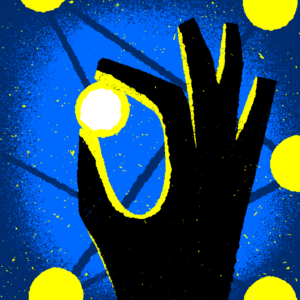
Which Presentation Archetype are You?
Now that I’m coming up on almost 15 years in the advertising and creative world, I’ve noticed common barriers for most people are:
-
-
Anxiety
-
-
-
Fear of Presenting (which you could consider a subset of anxiety).
-
And it’s often the most eloquent people who fear public speaking, the ones who have the most to say, and the most unique points of view. That’s why I decided to teach a class about “Finding Your Presentation Style.”
There isn’t a one-size-fits-all “correct” way to present. Instead, the most magnetic quality of any presenter is authenticity, not rote memorization.
To flesh out my presentation archetypes, I thought about the many mentors, clients and peers I’ve watched present over the years. Some are reserved, thoughtful and trustworthy. Some are funny, improvisational and casual. No one style is better than the others, but they all have common themes almost anyone can see themselves in.
I practiced the class with people on staff, and found out that almost everyone physically dreads public speaking, even the best speakers. If you feel that way, you’re not alone.
Read up on the presentation archetypes, and try honing your style based on the one you identify with most. (Or mix in a secondary style as a minor). I’d love to hear how it goes.

The Dot Connector
The Dot Connector is an argument architect, adept at spinning a tale, weaving a web and making an airtight case. They know the material by heart, have analyzed each statistic and graph, and have a master-plan for where the conversation is supposed to go. They understand that a presentation isn’t about an exhaustive list of information, but a path to exposing a deeper human insight.
Important Note
The Dot Connector does not leave out the audience. They purposefully add in a few open dots for them to connect, so they can participate in the aha moment.
You May Be One If
- You place great value on the overall structure of a presentation
- You prefer to practice privately before presenting to others
- You leave yourself lots of liner notes in the margins
- You scour presentations for linearity of logic
- You fear making the same point twice
- You practice refutations against perceived criticisms of your argument
Famous Examples
Michael Barbaro
Alexandria Ocasio-Cortez

The Host
The Host majored in listening in college. They approach every conversation with empathy and curiosity, and are more interested in how the audience reacts than in selling through a predetermined argument. They’re a natural at asking big questions, creating a dialog and making everyone feel heard. They know that a presentation shouldn’t be one-sided, but is partially shaped by whoever is taking it in.
Important Note
The Host is not a passive presenter. They stand behind their subject matter because every point they make is based on deeply hearing the experts.
You May Be One If
- You tend to assign speaking roles to a wider group of presenters
- You have a master plan for timing your presentation
- You leave natural points for discussion at every chapter close
- You enjoy synthesizing differing points of views in the room
- You live for what the audience brings to each presentation
- You love a challenging question along the way
Famous Examples
Oprah
Sarah Koenig

The Ponderer
The Ponderer likes to think deeply about every point they make, and gains an immediate sense of trust from the audience. Their biggest fear is presenting an idea they haven’t thoroughly examined and cannot stand behind. They don’t enjoy being the center of attention, and would far prefer to immerse you in the wonderful content they’ve prepared. When they are asked a question, they will not rush to a conclusion, but instead ask for time to truly think it through.
Important Note
The Ponderer is the archetype that enjoys presenting the least, but it doesn’t mean they can’t command an audience. Because of their thoughtfulness, they are incredibly compelling.
You May Be One If
- You don’t enjoy competing with loud voices in a room
- You like to spend a lot of time processing the material
- You assume that people don’t want your opinion until they ask for it
- You dislike canned answers and clichés
- People tell you often that your perspective is unique
- You prefer authentic connections over flashy ones
Famous Examples
Terry Gross
Ira Glass

The Improviser
The Improviser’s greatest fear is boring an audience. They read the room the second they enter it and calibrate their presentation accordingly. They find the idea of marginal notes or index cards a waste of time, and prefer to memorize and constantly refine their speech. They live to joke with the audience and would do anything to avoid giving the same speech twice.
Important Note
The Improviser, while wanting to make a presentation fun and original, is not unfamiliar with their material. In fact, they’re most able to successfully improvise when they know what they’re talking about.
You May Be One If
- You have an innate talent for memorization
- You prefer to constantly workshop and evolve your material
- You’re good at reading the room and calibrating accordingly
- You feel stiff when you practice or use index cards
- You have full confidence that you know your material
- You recover quickly from mistakes and challenges
Famous Examples
Conan O’Brien
Barack Obama
Artwork by Andrew Beckman





